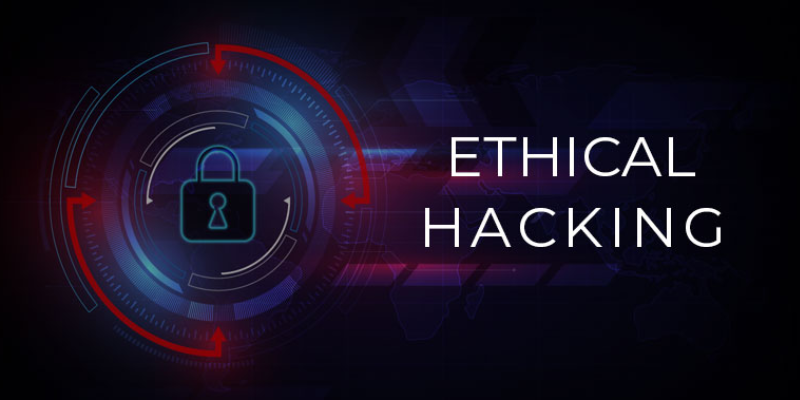
Ethical Hacking entails the permitted examination of systems and networks to detect and resolve security weaknesses before they are exploited by malicious individuals. It is essential for proactively uncovering and addressing potential vulnerabilities to prevent exploitation by cybercriminals. It is vital for reinforcing security protocols, maintaining regulatory adherence, and securing sensitive information. In this blog, we explore what is the importance of Ethical Hacking. You can enrol in an Ethical Hacking Course in Gurgaon at FITA Academy, where you’ll gain basic knowledge in Ethical Hacking.
What is Ethical Hacking?
Ethical hacking involves authorized and deliberate examination of systems, networks, or applications to discover and correct security flaws. Unlike malicious hackers, ethical hackers work with organizations to strengthen their defences and prevent potential breaches, ensuring systems are secure against cyber threats and compliance with regulations.
Importance of Ethical Hacking
Ethical Hacking has become a cornerstone of robust cybersecurity in today’s digital era. It involves the authorized, proactive probing of computer systems and networks to identify and address vulnerabilities before malicious hackers can exploit them.
Identifying Vulnerabilities
Ethical Hacking plays a crucial role in identifying vulnerabilities within systems, networks, and applications before malicious hackers can exploit them. By simulating real-world attacks, ethical hackers can uncover weaknesses in security measures, software, or configurations that could be exploited by cybercriminals. This proactive strategy enables organizations to tackle vulnerabilities, enhancing their security posture and lowering the risk of breaches. Join the Ethical Hacking Course in Kolkata, which helps to plan a network vulnerability assessment and penetration test.
Enhancing Security Measures
Ethical hackers assist in enhancing security measures by testing and validating existing defenses. They provide valuable insights into the effectiveness of firewalls, intrusion detection systems, and encryption protocols. Through their testing, they can recommend improvements or modifications to security infrastructure, ensuring that it can withstand potential attacks. This continuous improvement cycle helps organizations stay ahead of evolving cyber threats.
Compliance with Regulations
Many industries are subject to stringent regulatory requirements related to cybersecurity and data protection. Through consistent security assessments and penetration testing, organizations can show their dedication to protecting sensitive data and mitigate the risk of legal and financial repercussions from non-compliance.
Protecting Sensitive Data
Protecting sensitive data, such as personal information, financial records, or intellectual property, is a primary concern for organizations. Ethical Hacking helps safeguard this data by identifying potential data breaches or leaks before they occur. By discovering and addressing security flaws, ethical hackers ensure that sensitive information remains secure, maintaining customer trust and protecting the organization from reputational damage. Explore the Ethical Hacking Course in Ahmedabad, which helps protect your data from threats and unknown sources.
Preventing Financial Loss
Cyberattacks can result in significant financial losses due to operational disruptions, data breaches, or theft. Ethical hacking prevents potential losses by actively uncovering and remedying security flaws. By reducing the likelihood of successful attacks, organizations can avoid the costs associated with remediation, legal fees, and compensation for affected parties. Investing in Ethical Hacking can, therefore, be a cost-effective measure in preventing potential financial damage.
Improving Incident Response
Ethical Hacking contributes to improving an organization’s incident response capabilities. By simulating attacks, ethical hackers assist organizations in assessing their capacity to detect, respond to, and recover from security incidents. This assessment reveals weaknesses in incident response strategies and offers chances to enhance and fortify them. Effective incident response is crucial for minimizing the impact of a security breach and ensuring a swift recovery.
Training and Awareness
Ethical hackers play a role in training and raising awareness among employees about cybersecurity best practices. By demonstrating how attacks are carried out, they help staff understand the risks and recognize potential threats. This training can lead to better security hygiene and reduce the likelihood of human error, which is often a significant factor in successful cyberattacks.
Securing Emerging Technologies
As technology evolves, new systems and applications are introduced, often with unique security challenges. Ethical Hacking is essential for securing emerging technologies such as cloud computing, Internet of Things (IoT) devices, and artificial intelligence (AI). By evaluating these technologies for potential vulnerabilities, ethical hackers help ensure that they are integrated securely into organizational infrastructure, mitigating the risks associated with their adoption. To learn more about the concepts of Ethical Hacking, enrol in an Ethical Hacking Course in Delhi.
Enhancing Business Continuity
Business continuity is vital for maintaining operations and protecting organizational assets. Ethical Hacking helps enhance business continuity by identifying and addressing vulnerabilities that could disrupt operations. By ensuring that security measures are robust and effective, ethical hackers contribute to a resilient infrastructure that can withstand potential disruptions and maintain ongoing business activities.
Building Trust with Stakeholders
Organizations that prioritize cybersecurity through Ethical Hacking demonstrate their commitment to protecting stakeholder interests, including customers, partners, and investors. By proactively addressing security concerns and maintaining robust defenses, organizations build trust and confidence among their stakeholders. This trust can lead to stronger business relationships and a positive reputation in the marketplace.
Ethical Hacking is essential for preemptively identifying and addressing security vulnerabilities, thereby enhancing overall system protection. It aids in regulatory compliance, protects sensitive data, and enhances incident response and business continuity. By investing in Ethical Hacking, organizations fortify their defenses and build trust with stakeholders. Enrolling in an Ethical Hacking Course in Jaipur is the correct way to build your career.
Also Check: Ethical Hacking Interview Questions and Answers
